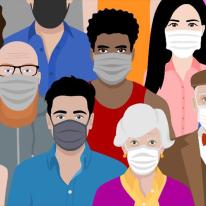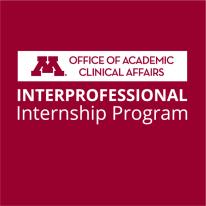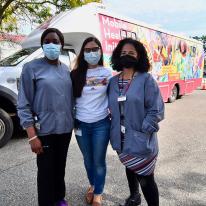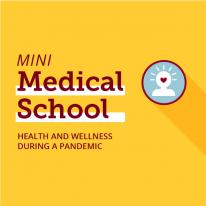It started with a hospital complex for sale. We saw potential, but weren’t sure how we would use it. We looked at the needs of our state and communities. We looked at our research and practice strengths, and we looked at the entire University for potential partnerships.
We found a deep need for a better understanding of how children’s brains develop and for ways to help.
We found a partner with extensive research into the science of learning, the impact of early stress and trauma, and the plasticity of the adolescent brain. We found a supporter in the Masons, who have long funded programs in health. We found a pediatrician who was studying how nutrition and other factors impact early brain development in the first 1,000 days of life. We found a scientist harnessing brain imaging and big data to better understand how the brain works. We found a clinical partner.
And this is how the MIDB was formed in partnership with the College of Education and Human Development and the Medical School, funded by a generous gift from the Masons, and led by pediatric researcher Dr. Michael Georgieff and developmental neuroscientist Dr. Damien Fair, with clinical care provided through M Health Fairview.
That is the Cliff Notes version, and I strongly encourage you to follow the link and learn more about MIDB, the first institute of its kind to focus on the science of, and clinical care for, the developing brain.
On Nov. 1, MIDB opens its doors to families in Minnesota and starts on this ambitious and incredibly powerful mission to advance brain health from the earliest stages of development across the lifespan, supporting each person’s journey as a valued community member.
Driving Innovation & Discovery

Statewide Research Program to Address Impact of Racism on Cardiovascular Health Inequities
A new research center, the Center for Chronic Disease Reduction and Equity Promotion Across Minnesota (C2DREAM), led by the University of Minnesota (U of M) and Mayo Clinic, will research the impact of structural and interpersonal racism on these health inequities for people who are Black, Indigenous and people of color (BIPOC).

Planning & Managing Budgets Across Multiple Sites: Avoiding Subaward Hades
Hosted by the Clinical Research Support Center and CTSI's Research Education, Training, and Career Development core, this seminar on Oct. 29 will help you learn key elements to consider when budgeting for a multi-site trial and understanding the contracting workflow and lead-PI responsibilities in sub-awarding to participating sites.
Advancing Interprofessional Education & Training

OACA Interprofessional Internship Program
OACA is excited to announce our second cohort of students in the Interprofessional Internship Program. Twenty students from across the health sciences have been accepted and matched with core projects with clinical and community partners in Minnesota. The goal of the program is to provide students with an opportunity to engage other health professionals in shared problem solving during the course of the projects and apply leadership practices that support equitable/effective interprofessional collaboration. Interns will engage in a monthly professional development series and benefit from networking and mentorship opportunities.
Partnering With Communities

Introducing the Mobile Health Initiative Vehicle
Access to health care is typically measured by insurance coverage as this is correlated with people seeking preventative screenings and care. However, other social determinants such as transportation, shelter, cost and language are factors. To help address these disparities, OACA has launched the Mobile Health Initiative vehicle. The vehicle debuted at a recent CUHCC-hosted community health open house where more than 50 patients received preventative medical and dental care, flu and COVID-19 vaccines.
U-Wide Events & Opportunities

Watch Now: Recording of Mini Medical School Session 1
The first session of Mini Medical School: Health and Wellness During a Pandemic on "Pandemics Through the Ages" had over 400 attendees on Monday night. In case you missed it, the recording is now available for you to view at your convenience. There is still time to register for Sessions 2 and 3 on the impact of the pandemic on non-COVID diseases and mental health and wellbeing.

Reminder: Nominations for Academies for Excellence Due
Submit your faculty nominations for the Academies for Excellence, which recognize our most distinguished health scientists and educators. Nominations are open to all University of Minnesota faculty. Deadline for submission is Nov. 5. If you have any questions or would like more information please contact [email protected].

The Relationship between Climate Change and Health and What You Can Do About It
In this webinar on Nov. 4 hosted by the UMN Bakken Center and led by University of Minnesota health sciences students, we will introduce the ways in which climate change and health intersect. The warming climate is affecting human and animal health in many ways, some of which are more obvious and some that are more subtle. Rising temperatures, droughts, pollution, increased storms, and wildfires have direct and indirect effects on the health and wellbeing of the people and creatures around us. After discussing these topics, we will end with ways in which we as community members can advocate for change to improve the health of humans, animals, and the planet.



